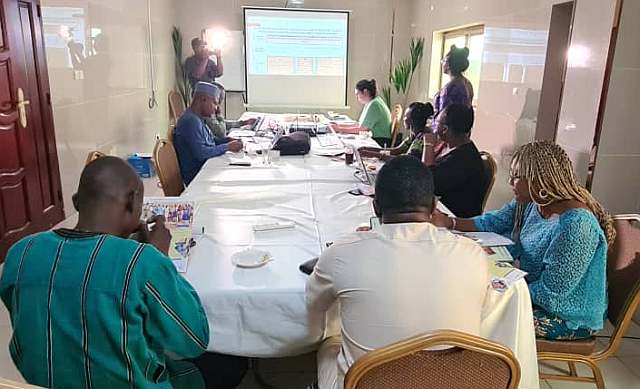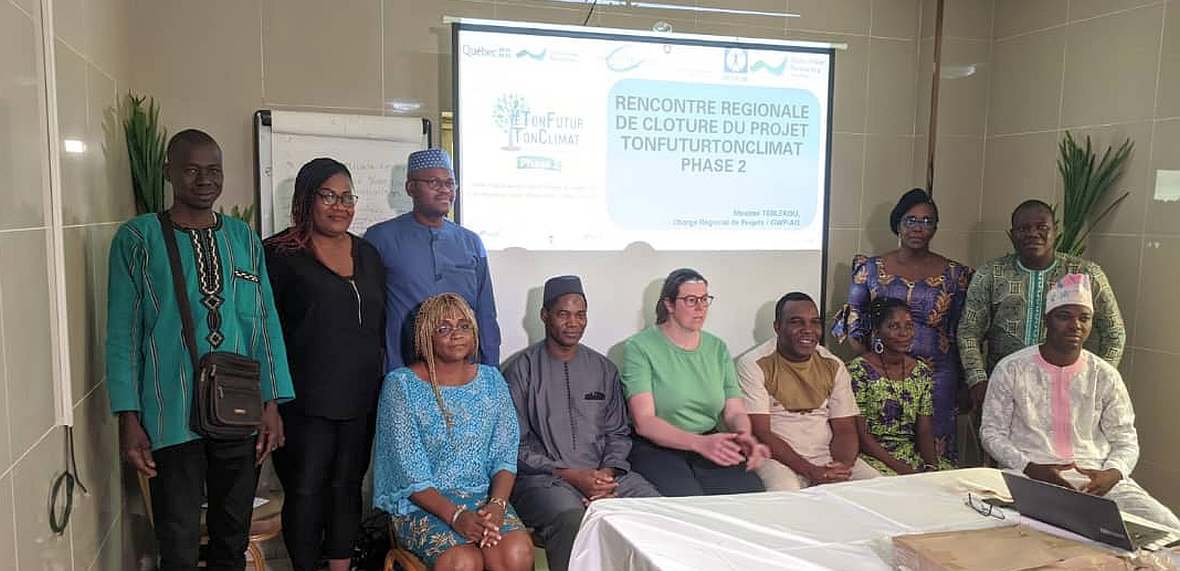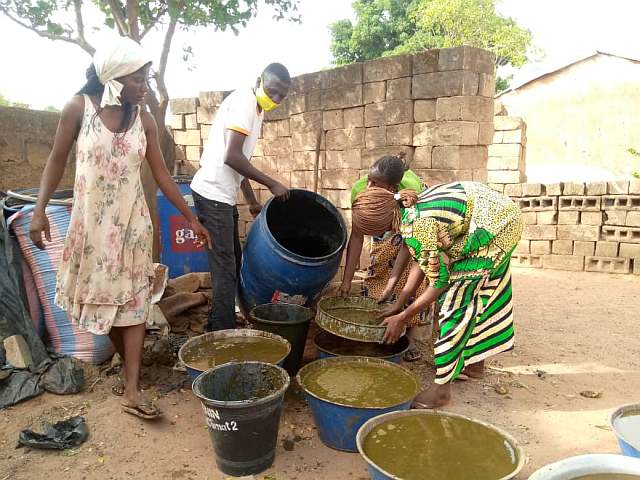 This conviction is expressed by Mr. Maxime TEBLEKOU, Regional project Officer of the TonFuturTonClimat phase 2 or TFTC 2 for Global Water Partnership West Africa (GWP-WA). TFTC 2 builds on the experience and results of TFTC 1 2017 - 2020. It is based on the implementation of three (3) national initiatives which are: (i) the project "Mobilisation of youth associations for better management of water resources in the Tchoutchoubou micro-basin in the Pendjari basin" in Benin; (ii) the project "Promotion of good practices in sustainable land management, adaptation to climate change and conservation of biological diversity in the rural commune of Komki Ipala" in Burkina Faso; and (iii) the project "Support to young people for a transition to sustainable agriculture through agro-ecological practices in the communes of Grand Kloto" in Togo.
This conviction is expressed by Mr. Maxime TEBLEKOU, Regional project Officer of the TonFuturTonClimat phase 2 or TFTC 2 for Global Water Partnership West Africa (GWP-WA). TFTC 2 builds on the experience and results of TFTC 1 2017 - 2020. It is based on the implementation of three (3) national initiatives which are: (i) the project "Mobilisation of youth associations for better management of water resources in the Tchoutchoubou micro-basin in the Pendjari basin" in Benin; (ii) the project "Promotion of good practices in sustainable land management, adaptation to climate change and conservation of biological diversity in the rural commune of Komki Ipala" in Burkina Faso; and (iii) the project "Support to young people for a transition to sustainable agriculture through agro-ecological practices in the communes of Grand Kloto" in Togo.
These model initiatives are sustainable, economically viable, replicable and have tangible impacts for the population. They have involved young leaders from rural and peri-urban areas in their design, planning and implementation. The project strengthened the capacities of associations and equipped young people (aged 18-35) in Benin, Burkina Faso and Togo to become promoters of innovative ideas to respond sustainably to the challenges of climate change and support local economic development.
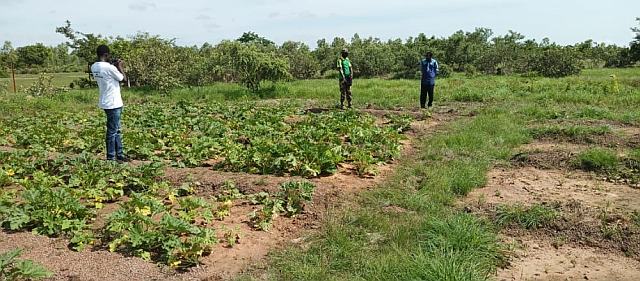 TFTC 2 has helped build the capacities of more than 530 young people (girls and boys) in the three beneficiary countries in various areas of socio-economic activities, including compost making, the creation of improved stoves, the establishment of tree nurseries, the application of ecological agricultural techniques, environmental protection, the development and restoration of degraded soils, the protection of soils and riverbanks, the proper structuring of an association, the keeping of accounting records, the development of small projects, and the marketing of agricultural products, among others. TFTC 2 has also given visibility and a voice to youth associations with local authorities on the one hand, and on the other hand facilitated their involvement in decision-making circles regarding the management of water-related problems and the impacts of climate change at the local level.
TFTC 2 has helped build the capacities of more than 530 young people (girls and boys) in the three beneficiary countries in various areas of socio-economic activities, including compost making, the creation of improved stoves, the establishment of tree nurseries, the application of ecological agricultural techniques, environmental protection, the development and restoration of degraded soils, the protection of soils and riverbanks, the proper structuring of an association, the keeping of accounting records, the development of small projects, and the marketing of agricultural products, among others. TFTC 2 has also given visibility and a voice to youth associations with local authorities on the one hand, and on the other hand facilitated their involvement in decision-making circles regarding the management of water-related problems and the impacts of climate change at the local level.
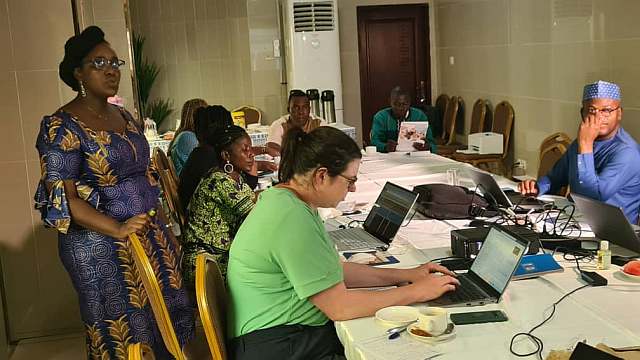 This led Ms Laurie FOURNEAUX, Youth Programme Officer at the International Secretariat for Water (ISW) who says that "by putting forward water strategies and solutions that are both innovative and anchored in the local development of their communities, the young people supported by the TonFuturTonClimat project have demonstrated their ability to be a force for change to guarantee a better future for all in this uncertain era disrupted by climate change. By supporting these social, economic and environmental laboratories in Benin, Burkina Faso and Togo, the International Secretariat for Water hopes to highlight the transformative potential of young people, which is still largely under-exploited, and that the results obtained will snowball at national and regional levels”.
This led Ms Laurie FOURNEAUX, Youth Programme Officer at the International Secretariat for Water (ISW) who says that "by putting forward water strategies and solutions that are both innovative and anchored in the local development of their communities, the young people supported by the TonFuturTonClimat project have demonstrated their ability to be a force for change to guarantee a better future for all in this uncertain era disrupted by climate change. By supporting these social, economic and environmental laboratories in Benin, Burkina Faso and Togo, the International Secretariat for Water hopes to highlight the transformative potential of young people, which is still largely under-exploited, and that the results obtained will snowball at national and regional levels”.
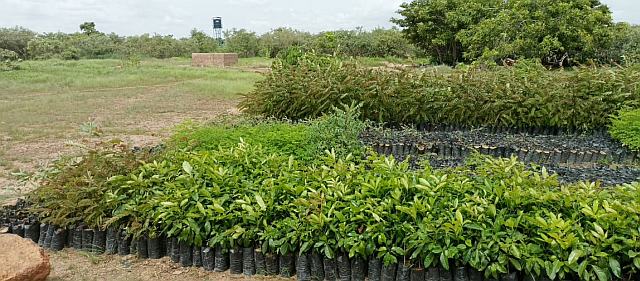 Launched in May 2021 in Ouagadougou, Burkina Faso, the implementation of TFTC 2 ended in April 2023 after 2 years of activity implementation. To draw lessons learned from the implementation and make recommendations for scaling up the results in West Africa, the TFTC 2 project implementation actors are meeting in a closing workshop from 23 to 26 May 2023 in Lomé, Togo.
Launched in May 2021 in Ouagadougou, Burkina Faso, the implementation of TFTC 2 ended in April 2023 after 2 years of activity implementation. To draw lessons learned from the implementation and make recommendations for scaling up the results in West Africa, the TFTC 2 project implementation actors are meeting in a closing workshop from 23 to 26 May 2023 in Lomé, Togo.
It is in response to a call from the International Climate Cooperation Programme (ICCP) that the International Secretariat for Water (ISW) and the Global Water Partnership in West Africa (GWP-WA), submitted and obtained funding for the implementation of Phase 2 of the TonFuturTonClimate initiative (TFTC 2) in collaboration with the National Water Partnership of Benin (PNE-Benin), the National Water Partnership of Burkina Faso (PNE-Burkina) and the NGO Jeunes Volontaires pour l'Environnement du Togo (JVE Togo). The TFTC2 project is funded by the Government of Quebec and the Global Water Partnership (GWP), the Swiss Agency for Development and Cooperation (SDC) and the Artois Picardie Water Agency.
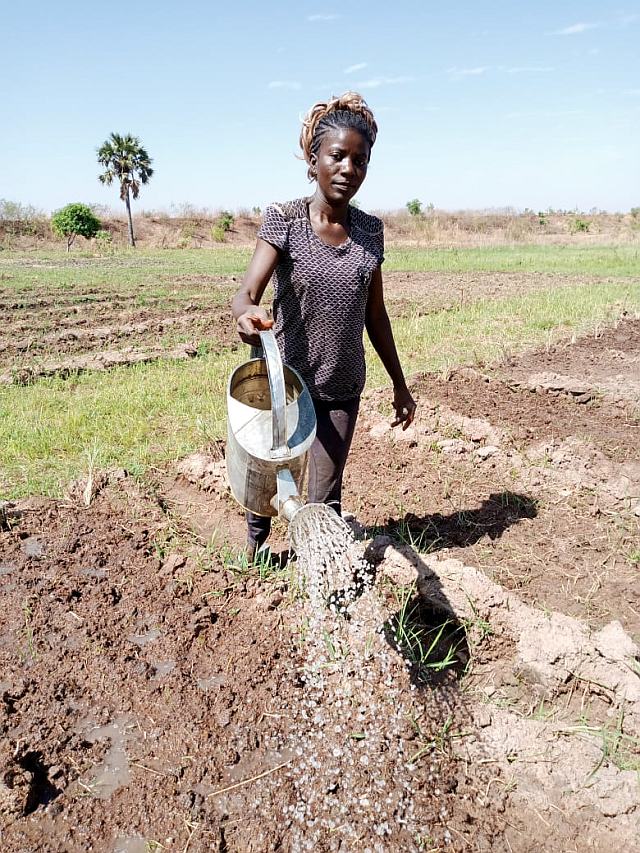 In all three countries, the beneficiaries are unanimous in recognising the impact of the project on their lives, as testified by Ms BEKOUANA Drusile, a young girl beneficiary of the TFTC 2 project and treasurer of the "Bio Or Dur" cooperative in Tanguiéta, Benin: "I am very happy to belong to a group of young people who are working to become autonomous and to create employment around the production of organic fertilisers, with the support of the TFTC2 project". In Burkina Faso, Mrs. LOURGO Marcelline, promoter of improved stoves in the village of Vipalgo, states: "We were trained under the TFTC2 project on the techniques of making improved clay-based stoves. This training has taught us a new trade, which can improve our living environment”. Mr. BATCHEY Komlan Apédoh, Mayor of Kpélé 1 in Togo, concludes in these terms: "I adopted the project because it allowed us to reforest 7 ha of Gmelina, Neem and Acacia forest plants. I have also adopted agroecology, which I promote, and I eat agroecological products because this agriculture heals”.
In all three countries, the beneficiaries are unanimous in recognising the impact of the project on their lives, as testified by Ms BEKOUANA Drusile, a young girl beneficiary of the TFTC 2 project and treasurer of the "Bio Or Dur" cooperative in Tanguiéta, Benin: "I am very happy to belong to a group of young people who are working to become autonomous and to create employment around the production of organic fertilisers, with the support of the TFTC2 project". In Burkina Faso, Mrs. LOURGO Marcelline, promoter of improved stoves in the village of Vipalgo, states: "We were trained under the TFTC2 project on the techniques of making improved clay-based stoves. This training has taught us a new trade, which can improve our living environment”. Mr. BATCHEY Komlan Apédoh, Mayor of Kpélé 1 in Togo, concludes in these terms: "I adopted the project because it allowed us to reforest 7 ha of Gmelina, Neem and Acacia forest plants. I have also adopted agroecology, which I promote, and I eat agroecological products because this agriculture heals”.
